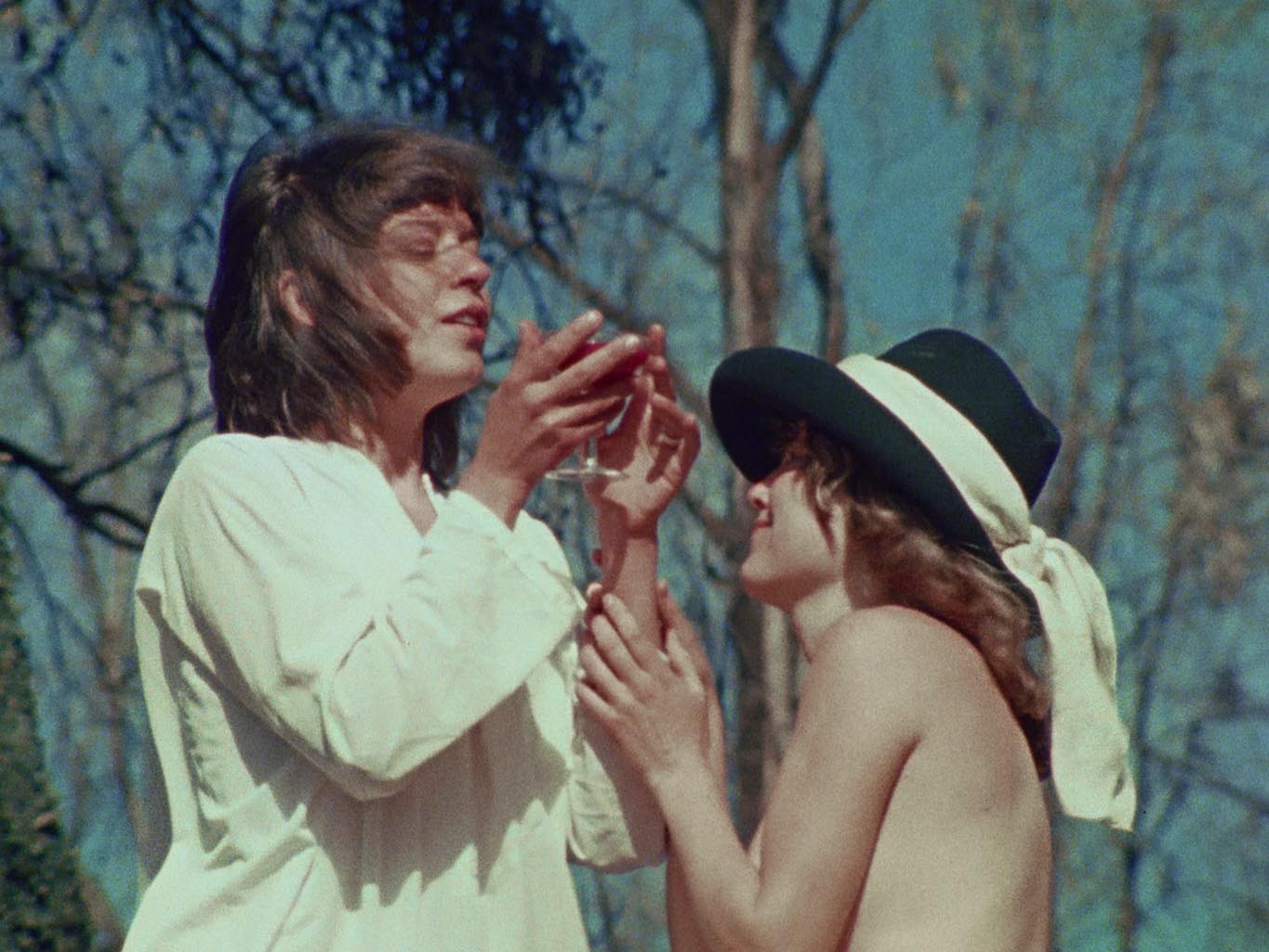CERCA
31 maggio 2023, 18.30 / Cinema De Seta
panorama queer
Menses
Barbara Hammer
Stati Uniti 1974 / 4’ / v.o. sott. it.
programma curato da Nuova Orfeo

[ita]
Una sinfonia in rosso: il rosso della vita, della morte, dell’amore, del rituale dolorosamente femminile dalla cadenza mensile. Una commedia ironica sugli aspetti sgradevoli delle mestruazioni, in cui le donne recitano i loro drammi su una collina californiana, in un supermercato, all’insegna di una liturgia eretico-eucaristica, filtrata in rosso, una cerimonia a base di antinfiammatori e sangue, che sancisce la nuova ed eterna alleanza tra le donne, tra cataste di assorbenti e rotoli di carta igienica. Menses combina sia l'immaginario che la politica delle mestruazioni in una sagace miscela di commedia e dramma.
[eng]
A symphony in red: the red of life, death, love, and the painfully feminine ritual of monthly cadence. A wry comedy on the disagreeable aspects of menstruation, in which women act out their own dramas on a California hillside, in a supermarket, characterized by a red-filtered liturgy, at the same time heretical and eucharistic, a ceremony based on anti-inflammatory and blood that enshrines the new and eternal alliance between women, amidst stacks of tampons and rolls of toilet paper. Menses combines both the imagery and the politics of menstruation in a shrewd blend of comedy and drama.
Barbara Hammer
[ita]
Cineasta femminista e pioniera del cinema queer, ha realizzato più di novanta opere visuali, oltre a performance, installazioni, fotografie, collage e disegni. Negli anni ’70 ha studiato cinema alla San Francisco State University. Dopo aver visto il film Meshes of the Afternoon di Maya Deren, fu ispirata a realizzare film sperimentali sulla sua vita personale. Dopo aver dichiarato di essere lesbica, “è partita in moto con una cinepresa super-8” e nel 1974 ha girato Dyketactics, considerato uno dei primi film lesbici. Ha cercato di decostruire e depotenziare le narrazioni e le strutture che opprimono le donne in generale e le lesbiche in particolare. Fin dai suoi primi lavori sperimentali, i suoi film sfidano in modo giocoso e implacabile le norme accettate. Nel 1992 realizza il suo primo lungometraggio, Nitrate Kisses, un documentario sperimentale che esplora l'emarginazione delle persone LGBT. Il suo film pluripremiato del 2009, A Horse Is Not a Metaphor, si basa sulla sua esperienza del cancro. Ha inoltre istituito il Barbara Hammer Lesbian Experimental Filmmaking Grant, assegnando la prima sovvenzione nel 2017. Si è spenta nel 2019.
[eng]
Feminist filmmaker and pioneer of queer cinema, she made over 90 moving image works as well as performances, installations, photographs, collages and drawings. In the ’70s she studied film at San Francisco State University. After seeing Maya Deren’s film Meshes of the Afternoon, she was inspired to make experimental films about her personal life. After coming out as a lesbian she “took off on a motorcycle with a super-8 camera” and in 1974 filmed Dyketactics, widely considered to be one of the first lesbian films. She sought to deconstruct and disempower the narratives and structures that oppress women in general and lesbians in particular. From her earliest experimental work, her films are playfully and relentlessly challenging of accepted norms. In 1992 she released her first feature film, Nitrate Kisses – an experimental documentary exploring the repression and marginalization of LGBT people. Her award-winning 2009 film, A Horse Is Not A Metaphor, is based on the director’s experience of surviving cancer. She also established the Barbara Hammer Lesbian Experimental Filmmaking Grant, awarding the first grant in 2017.
Menses
Barbara Hammer
Stati Uniti 1974 / 4’ / v.o. sott. it.
screenplay Barbara Hammer
cinematography Barbara Hammer
editing Barbara Hammer
contact https://www.eai.org/videosite
contact kmccool@eai.org



